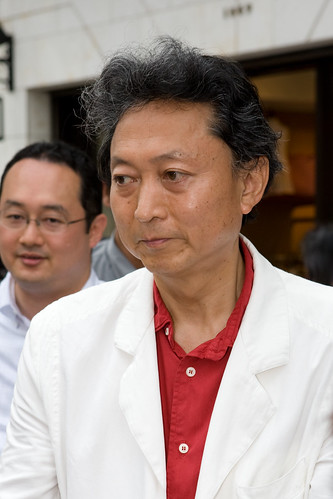Pete Peterson—businessman, statesman, philanthropist—has developed an economic
perspective informed by three distinct and first-hand relationships with American policy. In this video interview, the cofounder of Blackstone and former secretary of commerce reflects on his storied career and his recent memoir, The Education of an American Dreamer. He also looks forward—sharing his ideas on deficit reduction, changes in private equity, the fate of the dollar, and how to rebuild the US economy for future generations. Rik Kirkland, McKinsey’s director of publishing, spoke with Mr. Peterson in New York in November 2009.
The Quarterly: We’re here today with Pete Peterson, who is cofounder of the Blackstone Group, former secretary of commerce, and chairman emeritus of the Council on Foreign Relations. Pete, thanks for being with us today.
Peter Peterson: My pleasure.
The Quarterly: Now, in your long and distinguished career as a business executive and a statesman, you’ve also been an author. Your latest book is The Education of an American Dreamer. So why did you write it, and what are some of the things you learned?
Peter Peterson: Well, you know, when you’re a businessman and you’re pompous enough and presumptuous enough to write books, you have to be prepared to be roasted. And my favorite roaster is Ted Sorenson, who, about my last book said, “Once you put it
down, you will not be able to pick it up.” That was not enough to discourage me, but I think this is the last one. This is a memoir.
Why did I write it? Well, I have nine grandchildren and five children. I’m particularly concerned that the American dream that has made me into an American dreamer will no longer be there for them. So I thought it would be worthwhile for those nine grandchildren, and who else wants to read it, to realize that there are opportunities in this country if you work hard enough and make the right decisions.
One of the lessons I’ve learned is to apply the Adam Smith principle in your business career: comparative advantage. Focus on the things that you do better than the other things that you do, and resist the seductions of a little more pay or a little nicer office or a little better title if it does not play to your strengths. Secondly, pick a field where your passions are, because the combination of playing to your strengths and being passionate about it can make a very big difference in a career.
The Quarterly: The book ends with you taking the fortune you earned when Blackstone went public and putting it into a private foundation, the Peterson Foundation. I was wondering if you could talk about that.
Peter Peterson: There are certain long-term challenges that I call “undeniable, unsustainable, and yet politically untouchable.” I thought of myself on my deathbed looking back and saying, “I’ve been very concerned about these challenges,” of which I include entitlements, Social Security, Medicare, our huge balance of payments, deficits, our foreign debts, our lack of savings in this country, and why I think they’re going to impair
our future.
The Quarterly: So what are some of the things the foundation is doing?
Peter Peterson: Well, we’re doing a number of things. We’re focusing pretty heavily on the young, because it’s their future that’s being impaired. And you know the old joke about the philosophy class where the professor says to the class, “Which is worse, ignorance or apathy?” And some sleepy kid from the back says, “I don’t know and I don’t care.”
Well they had better start caring, because on the track we’re on, their taxes are going to increase dramatically. The unfunded liabilities total nearly $60 trillion, falling squarely on them.
I have a dream, which is that we would be smart enough and lucky enough to set up an organization called the American Association of Young People. We have the American Association of Retired Persons, 39 million strong, who are an enormously effective lobbying group. But I think our kids need a lobby too—they and their parents. So we’re putting a lot of focus on the young.
The Quarterly: This is an issue that you’ve talked about for 20 years very articulately, and it obviously concerns a lot of people in this country. And I mean no disrespect to you, but the fact is, for the whole period you’ve talked about it, the problem hasn’t gone away.
In fact, it’s probably gotten worse. What gives you hope that we will finally begin to deal with it? And how do we deal with it right now at a time when the stimulus bill and the need to get out of this economic slump have made the deficit temporarily bigger?
Peter Peterson: What we’ve got to do is somehow make it safer for the politicians to
do the right thing. And we have to make it unsafe for them to do nothing. So I think a lot of this is the politics of short-termism and the politics of entitlements—one of my least favorite words. We think the time has come for a very special bipartisan commission, composed of equal numbers of Democrats and Republicans.
The Quarterly: It’s along the lines of the Greenspan commission?
Peter Peterson: Yes, with some special wrinkles, in which everything is on the table. And the procedures are a little bit like how we handle military base closings, where we’ve discovered that if you only handle these military bases one at a time, you kind of get cherry picked. What we’re envisioning is a group in which everything is on the table.
You can’t eliminate the need for tax increases. We will need some tax increases. You
cannot avoid the fact that the major part of the burden is going to have to be in spending reductions. We have a political system now in which too many Republicans have never met a tax cut they didn’t like, and too many Democrats have not met an entitlement spending program they don’t adore.
So what has happened? We’ve ended up with both of them. So there’s going to be enormous financing needs. I’m just talking to an expert that I’m working with on this. He’s trying to predict how much the treasury financing is going to have to be. And he said, “I can just tell you, they are skyrocketing and unbelievable.” Well, we’d better start asking the question, “Where’s the money going to come from?” And it’s terribly important, in my opinion, to send a signal to the foreign sources that we’re going to get our fiscal house in order.
The Quarterly: Let me close by asking you about one other area of your expertise, which is the private-equity markets, where Blackstone is a huge player and a very successful player. I’m just wondering if you could sort of both look over the evolution of the industry and look, say, five years out from now. Will it have bounced back to what it was a year or so ago? Will it be different in any fundamental ways?
Peter Peterson: Well, it’s changed enormously since Steve Schwarzman and I started
the firm in 1985. If you stop and think about it, the ’90s were a golden period for any leverage business. If you can get a lot of leverage—and we could get leverage (four to eight times)—and you have low interest rates and you have price earnings ratios doubling as they did during the ’90s, you’d have to be intellectually challenged not to make some money in that kind of an environment. And we got in the habit of believing it was our own financial genius that enabled us to make 30 and 40 percent returns. And it was very importantly a matter of dumb luck—plus whatever abilities we did have.
Now, the recent years have been the opposite. There has not been a lot of money left for leverage. You know, you have to go out and earn it by more productivity and more operational improvements. So the center of gravity of the private-equity business shifted from financial engineering to operational improvements. I have every reason to believe that’s going to continue, because once it starts, those who improve earnings and have confidence in our ability to improve earnings will be able to pay more than the firms that are relying totally on financial engineering.
The Quarterly: There’s been a lot of talk in the last few months about the role of the dollar and the dollar’s role to reserve currency. Do you believe the dollar’s role will be fundamentally different? Will it be about the same? Does it depend?
Peter Peterson: I think the most likely outcome, if we don’t get our act together, will be some kind of crisis in the dollar. And we all know the dollar falls suddenly and steeply. Interest rates rise very dramatically. So we have inflation and recession at the same time.
The Quarterly: So we can do this the hard way or the harder way?
Peter Peterson: The hard way. There are no easy alternatives. We’re long past that point. We’re talking about $60 trillion, in today’s dollars, of unfunded liabilities and promises. Totally unsustainable. And you’re never going to be able to solve this just by increasing taxes. You could get rid of the Bush tax cuts. You could get rid of all earmarks. You could get out of both wars. And it only covers 15 percent of our unfunded liabilities and promises.
The Quarterly: It really is Medicaid, Medicare, and Social Security.
Peter Peterson: Medicare and Medicaid. Medicare is $38 trillion; Social Security is $7 trillion, basically.
The Quarterly: And that’s where all the voters are. So go back to your association of young people, right? That’s what it’s going to take. Pete, thank you for being with us today. You’re still dreaming, and it’s a great story. We appreciate it.
Peter Peterson: Thank you.
__________________________
Now, Pete Peterson may look and sound like the old-wise guy, but doesn't he see any problem with our system/ He should know better, being an insider to many a power circle. A look at his recent book reveals that while he had been CEO of Bell&Howell, an American manufacturing operation, in the '60s, productivity grew under his command, but the sustainability of the business proved to be lacking not long after he left--the Japanese manufacturers saw the future in electronics, the American executive, concentrating on productivity improvements (read, cost cutting, which in today's version spells offshoring) could not see. I'm sure the reader of this blog is smarter than Mr. Peterson lets us in...

























